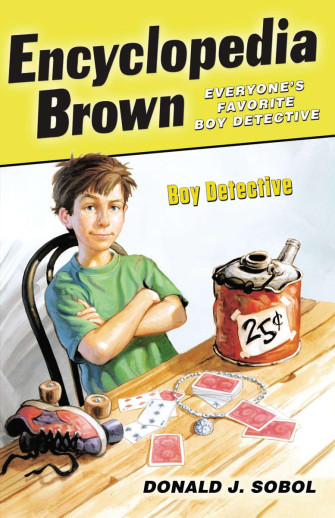We use cookies to make your experience better. To comply with the new e-Privacy directive, we need to ask for your consent to set the cookies. Learn more.
Encyclopedia Brown, Boy Detective (#1)
In the classical education model, a grammar student should be able to show reading comprehension on a literal and inferential level, demonstrate an increasing vocabulary, and identify various styles of literature as well as basic biblical values. These literature guides from Veritas Press are carefully constructed to train students in those skills. Encouraging oral reading and requiring questions to be answered in complete sentences, these worktexts are attractively illustrated (black & white) and easy to use with complete answer keys included (worksheets are reproducible for family use only). There are some basic similarities among the various titles. For instance, all have who/what/where/why/when questions for the student to answer. However, there's considerable variety as well. Alice in Wonderland, a third grade guide, includes recipes, several cut and paste projects, memory work, and some writing assignments (adding silly stanzas to a song). The fourth grade guide for The Story of Rolf and the Viking Bow includes (among others) vocabulary exercises, drawing assignments, a relationship web, a cause & effect worksheet, and several writing assignments (paragraphs, cinquain, and limerick). Author information and a short story writing assignment are included in Where the Red Fern Grows, a fifth grade guide.
As is typical with classical education material, the assigned grade levels often seem challenging. Don't let that discourage you from using an otherwise excellent resource – simply adjust the grade level to suit your student (guides are unlabeled). ~ Janice
| Product Format: | Softcover Book |
|---|---|
| Grades: | 3-4 |
| Brand: | Puffin Books |
| Author: | Donald J. Sobol |
| ISBN: | 9780142408889 |
| Length in Inches: | 7.5 |
| Width in Inches: | 5.25 |
| Height in Inches: | 0.25 |
| Weight in Pounds: | 0.175 |
| Ages: | 9 - 12 |
| Edition: | Illustrated |
| Illustrated by: | Leonard Shortall |
| Pages: | 88 |
| Publication Date: | 9/7/2013 |
Be the first to review this item


We are reading this in 2/3 grade LA.
My son loves kid detective books
Book to interest 10 year son.